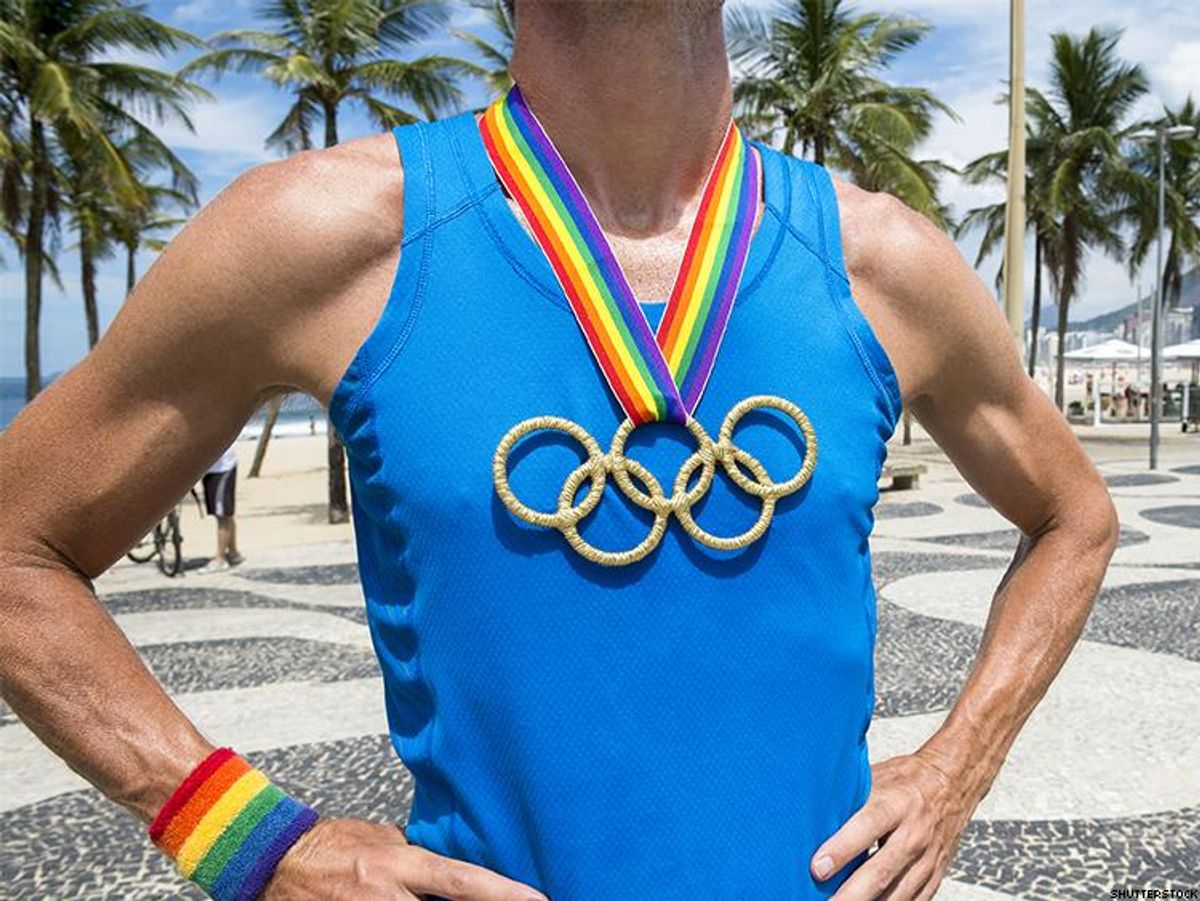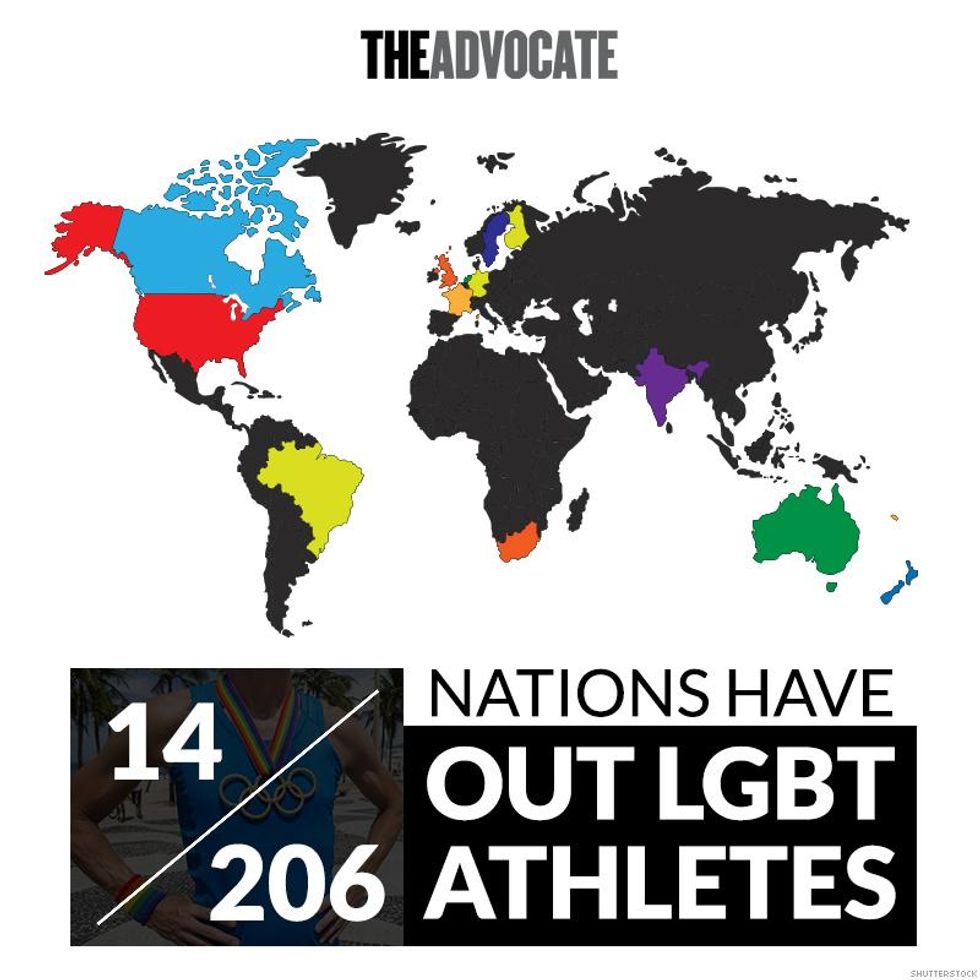There are a record-breaking number of out LGBT or intersex athletes competing in the Rio Olympics -- at least 48, according to the most recent count by The Advocate.
This may seem like a small number, especially when compared with a pool of about 11,000 participants, making it roughly 0.44 percent of the Olympic Village. But it is a signficant jump from the 2012 London Olympics (23) and the 2008 Beijing Olympics (10).
However, a breakdown of this year's total reveals significant disparities in both gender and country of origin, which are indicative of an uneven pace in the global march of LGBT rights.
In total, only 14 of 206 nations have out athletes participating in the 2016 competition. The United States and the United Kingdom, with eight athletes each, tied for the greatest LGBT representation at the Summer Games. These nations are followed by the Netherlands (7), Brazil (6), Sweden (4), Canada (3), France (2), Germany (2), New Zealand (2), South Africa (2), Australia (1), Finland (1), India (1), and Tonga (1).

These numbers generally correspond with each nation's legal and societal acceptance of LGBT people. For example, the majority of countries on this list have marriage equality or some form of civil unions.
The absences are also telling. The New York Times devoted an article Friday to the complete absence of out Chinese athletes. Indeed, if it weren't for Dutee Chand, an Indian woman who was almost banned from competing due to her high levels of testosterone, the entire continent of Asia would not be represented.
As for gender, women (37) made up the vast majority of the list. There are only 11 men (none from the United States), which suggests homophobia may exert greater pressure on male athletes both on the playing field and in their countries of origin. The sport also matters. Women's soccer (9), field hockey (5), rugby (4), and basketball (4) have the largest number of out athletes. There is a glaring absence of out male athletes in team sports; they tend to be represented in more isolated pursuits like equestrian (4) and diving (2).
The increased number of out Olympians is a reason to celebrate, as it is indicative of progress for LGBT rights. However, this progress is isolated to only a handful of nations. There are still 74 countries where same-sex relationships are illegal; 12 nations can sentence a gay person to death. The map above, which shows huge swaths of nations with no out Olympians, illustrates that the fight for acceptance is far from over.
A recent controversial article published in The Daily Beast, in which a reporter wrote about athletes he had contacted on Grindr in the Olympic Village, is another reminder of what is at stake for LGBT people worldwide. They could lose a competition due to anti-LGBT bias. They could also lose their lives.


















































































Viral post saying Republicans 'have two daddies now' has MAGA hot and bothered